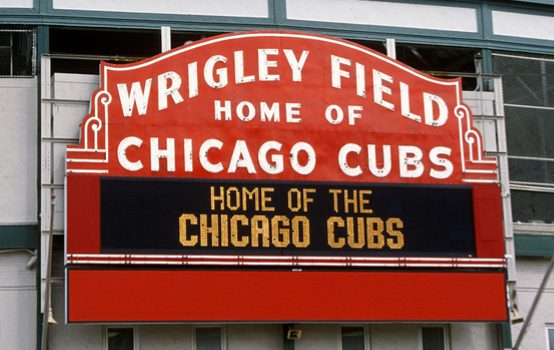Steve Bartman and the Mob

The Chicago Cubs’ long-deferred trip to the World Series has brought joy to millions, but for one fan, baseball and joy can never again be so innocently mixed.
Many of us have woken up the way Steve Bartman did on the morning of October 14, 2003, knowing that we would attend a baseball game later in the day—in his case, Game 6 of the National League Championship Series, in which the Cubs, holding a 3-2 lead, needed one more win to advance to the World Series. None of us has returned home the way Bartman did that night: with a police escort to protect the most hated man in a city of nearly 3 million people. He had police protection the next day and for a time afterward. He essentially went into hiding. He was excoriated by sports talk-show hosts and legions of fans. He received death threats and still gets some today. The game he attended that night became known as the Bartman Game; the seat he sat in, the Bartman Seat.
What on earth did he do? In the eighth inning, with the Cubs leading, 3-0, he reached for a foul ball, possibly preventing Cubs left fielder Moises Alou from catching it. Then the Cubs’ shortstop kicked a routine groundball, the manager left the exhausted starting pitcher in the game, and the relief pitcher, when he did arrive, offered little relief. The Cubs’ self-fulfilling “curse” had gotten in players’ and fans’ heads once again. The team blew a game it was five outs from winning, and then blew Game 7 the next day, too, squandering yet another chance to get to the World Series. Ignoring this large cast of culprits, many fans pinned the blame on one man: Bartman.
The Bartman story is a darkly representative one for our time. He could have been any of us. Jon Ronson’s bestselling So You’ve Been Publicly Shamed examines the burgeoning culture of ridicule on social media and in today’s “sharing” universe, but Bartman’s ordeal took place before social media. He was victimized by older forces, among them the madness of crowds, scapegoating, and media manipulation—videos of the missed foul ball were replayed repeatedly, as if it were the Zapruder film. His fate is a reminder of how sports, when they aren’t ennobling us, make too many of us nasty and cowardly and small. It was bad enough that Bartman had to be escorted out of Wrigley Field that night for his own protection. It was worse that the next day, adults—grown men and presumably sober, in the light of day—were still condemning and threatening him.
The only heroic figure in the saga is Bartman himself. The day after the game, he issued a public statement expressing sorrow “from the bottom of this Cubs fan’s broken heart” and asking angry fans to redirect their energies to rooting for the team again. In the 13 years since, he has given no interviews, written no books, started no blogs or Twitter feeds, posted no selfies. He has attempted neither to exonerate nor to exhibit himself, though if he were the kind of person we tend to admire these days—one who has evolved beyond personal shame—he could have made lots of money. It must have been a terrible realization, as it gradually dawned on him, that his notoriety was not temporary but permanent; that he, a mere fan, would share the fate of some star-crossed ballplayers of the past (like Fred Merkle), to live forever under the cloud of a single moment. How quaint and noble that, as this unearned infamy settled upon him, he resolved only to live as he had lived before. In doing so, he demonstrated what too many people never learn: the mob can stampede you underfoot, but the mob can’t have your soul unless you give it to them.
Bartman’s name is in the news again as the Cubs play in their first Fall Classic since 1945. Some have suggested that the team invite him to throw out the first pitch when the series moves to Wrigley Field; others, revisiting the events of 2003, have stressed that the Cubs’ collapse that year wasn’t really his fault. No doubt these sentiments are well-meaning, but they miss the point. It matters not a whit whether it was Bartman’s “fault” or not. Parsing his culpability implies that, in some future scenario, it might be justified to treat some other innocent person this way. But what was done to Bartman was abominable and has no justification in any case.
The calls for Bartman to return to Wrigley Field, supposedly to show that he is forgiven, obscure the fact that the need for forgiveness runs the other way—it is the fans who need absolution, and only Bartman could bestow it. (Isn’t it striking how, in a chatterbox culture, the man who does not chatter attains moral power?) But Bartman, true to form, doesn’t seem interested in making any appearances. And there the matter should be left to rest. Bartman has been man enough not to pursue a grudge; let the mob be manful enough not to insist on his blessing. That is more than fair and better than any mob deserves. Contrary to the spirit of our age, there really are situations for which the only proper response is silence.
Paul Beston is managing editor of City Journal.
Comments